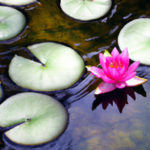If you’ve ever wondered how to incorporate a daily meditation practice into your life, look no further. This article aims to provide you with valuable insights and practical tips to help you build a meditation routine that suits your lifestyle. Whether you’re a beginner or someone who has dabbled in meditation before, we’ve got you covered. With an informative and holistic approach, we will guide you towards inner wellness and the immense benefits that a regular meditation practice can bring. So, let’s explore the path to a more serene and balanced mind together.
Setting Your Intention
Understanding the Benefits of Daily Meditation
Meditation offers a multitude of benefits for your overall well-being. It has been shown to reduce stress, enhance focus and concentration, improve sleep quality, boost creativity and productivity, and promote emotional stability. By incorporating meditation into your daily routine, you can experience these incredible benefits and create a positive impact on your mind, body, and spirit.
Defining Your Goals
Before embarking on a daily meditation practice, it’s essential to define your goals. What do you hope to achieve through meditation? Are you seeking stress relief, greater self-awareness, or spiritual growth? By clarifying your intentions, you can tailor your meditation practice to align with your desires and aspirations. Remember, meditation is a personal journey, and your goals may evolve over time.
Identifying the Right Time and Place
Finding the right time and place to practice meditation is crucial for establishing a consistent routine. Choose a time when you are less likely to be interrupted, such as early mornings or evenings when the world around you is quieter. As for the location, create a dedicated meditation space where you feel calm and at ease. It can be a corner in your home, a quiet park, or any place that allows you to disconnect from distractions and focus on your practice.
Choosing a Meditation Technique
With countless meditation techniques to choose from, it’s important to select one that resonates with you. Whether you prefer mindfulness meditation, loving-kindness meditation, mantra meditation, or any other technique, the key is to find one that aligns with your goals and feels comfortable for you. Experiment with different techniques to discover what brings you peace and clarity.
Creating a Ritual
Designating a Meditation Space
Designating a specific space for meditation helps create a sense of sacredness and tranquility. Choose an area in your home or outdoor environment where you feel a deep sense of calm. Consider adding elements such as cushions, candles, or plants to enhance the ambiance. By consistently meditating in this designated space, you’ll train your mind to associate it with relaxation and focused introspection.
Gathering the Right Tools
While meditation can be practiced without any external tools, certain items can enhance your experience. Cushions or meditation mats provide comfort and support, allowing you to maintain a proper posture during your sessions. You may also choose to incorporate elements like incense, soothing music, or essential oils to create a serene atmosphere. Explore different tools and experiment to find what complements your meditation practice.
Establishing a Regular Schedule
Consistency is key when it comes to daily meditation. Set aside a specific time each day for your practice and make it a non-negotiable part of your routine. Whether it’s a five-minute session in the morning or a longer session before bed, having a regular schedule helps develop discipline and ensures that meditation becomes an integral part of your daily life.
Preparing Your Mind and Body
Before diving into your meditation practice, it’s important to prepare your mind and body. Take a few moments to relax and let go of any tension or stress. Engage in some gentle stretching or deep breathing exercises to release physical and mental tension. This preparation allows you to enter your meditation practice with a clear and focused mind, ready to reap the maximum benefits.
Starting Small and Gradually Increasing
Beginning with Short Sessions
When starting your meditation practice, it’s wise to begin with short sessions. Aim for just five to ten minutes initially, gradually increasing the duration as you become more comfortable and familiar with the practice. Starting small allows you to establish a habit without feeling overwhelmed, making it easier to stay consistent in the long run.
Increasing the Duration Gradually
As your meditation practice becomes more ingrained in your daily routine, gradually increase the duration of your sessions. Add an extra minute or two every few days or weeks, depending on your comfort level. This gradual progression helps to prevent burnout or frustration and allows your mind and body to adapt to longer periods of stillness and focus.
Incrementally Introducing Different Techniques
While it’s important to establish a solid foundation with one meditation technique, don’t be afraid to explore and introduce new techniques over time. Each technique offers unique benefits and can cater to specific goals or situations. By incorporating variety into your practice, you keep it fresh and prevent monotony.
Listening to Your Body
During your meditation practice, always listen to your body’s signals. If you experience discomfort or pain, adjust your posture or take a break if necessary. Respect your body’s limits and be kind to yourself. Meditation should be a nurturing and gentle practice, and learning to cultivate self-compassion is essential on this journey.
Dealing with Common Challenges
Overcoming Resistance and Procrastination
It’s common to encounter resistance and procrastination when establishing a new habit, including meditation. However, being aware of these challenges empowers you to overcome them. Start by acknowledging the resistance and exploring the underlying reasons behind it. Remind yourself of the benefits of meditation and the positive impact it can have in your life. By reframing your mindset and gently pushing through resistance, you can establish a consistent meditation practice.
Managing Distractions and Restlessness
Distractions and restlessness are natural parts of the human experience, and they can often present challenges during meditation. Instead of getting frustrated or discouraged, view these distractions as opportunities for growth. When your mind wanders, gently bring your focus back to your breath or chosen point of focus. Accept that distractions may arise and remember that each moment of refocusing strengthens your mental resilience.
Addressing Physical Discomfort
Physical discomfort can sometimes arise during meditation, especially if you’re maintaining a seated position for an extended period. Experiment with different postures and cushions to find what works best for your body. It’s also helpful to incorporate regular breaks or stretches during longer sessions to alleviate any tension or discomfort.
Cultivating Patience and Persistence
Patience is a virtue, especially when it comes to meditation. It’s important to remember that progress in meditation is gradual and may not always be linear. Be patient with yourself, celebrate small victories, and trust in the process. Cultivating persistence is equally crucial. Even on days when motivation is low, showing up and committing to your practice reinforces your dedication and strengthens your meditation habit.
Exploring Guided Meditation
Understanding the Benefits of Guided Meditation
Guided meditation is an excellent tool for beginners and experienced practitioners alike. It involves following the instructions of a meditation teacher or audio recording, providing guidance throughout your practice. Guided meditations can help deepen your focus, introduce new techniques, and offer a sense of support and connection. Additionally, they can be particularly valuable when struggling with restlessness or a busy mind.
Finding High-Quality Guided Meditation Resources
When exploring guided meditation, it’s important to find high-quality resources. Look for reputable meditation teachers, apps, or websites that offer guided meditations created by experienced practitioners. Read reviews and consider recommendations from trusted sources to ensure you’re accessing reliable and effective guidance.
Using Mobile Apps and Online Platforms
In today’s digital age, there are numerous mobile apps and online platforms that provide guided meditation resources. Experiment with different apps or platforms to find one that resonates with you. Many apps offer a variety of guided meditations, allowing you to explore different lengths, themes, and styles to suit your preferences. Find an app or platform that aligns with your goals and offers a user-friendly interface.
Customizing Guided Meditations to Fit Your Needs
One of the advantages of guided meditation is its flexibility. While following a guided meditation, feel free to customize it to better suit your needs. If a certain instruction or visualization doesn’t resonate with you, don’t hesitate to modify it. Your meditation practice is a personal journey, and adapting guided meditations to your preferences enhances your overall experience.
Incorporating Mindfulness into Daily Life
Extending Mindfulness Beyond Meditation Sessions
The benefits of mindfulness can extend far beyond your dedicated meditation sessions. Bring mindfulness into your daily life by cultivating present-moment awareness in your everyday activities. Whether it’s mindful walking, cooking, or communicating, training yourself to be fully present enhances your overall well-being and deepens your meditation practice.
Practicing Mindful Eating and Drinking
One powerful way to incorporate mindfulness into daily life is through mindful eating and drinking. Take the time to savor each bite or sip, engaging all your senses. Notice the texture, taste, and aroma of your food or beverage. Eating mindfully enhances the enjoyment of your meals and promotes a deeper connection with your body and its nourishment.
Bringing Mindfulness to Daily Activities
In addition to eating and drinking, make a conscious effort to bring mindfulness to other daily activities. Whether it’s brushing your teeth, taking a shower, or doing household chores, be fully present in the moment. Notice the sensations, smells, and sounds associated with these activities. By infusing mindfulness into your daily routine, you create opportunities for greater self-awareness and peace.
Using Reminders and Triggers
To reinforce the habit of mindfulness in your daily life, utilize reminders and triggers. Set alarms or notifications on your phone to prompt a moment of mindful awareness throughout the day. You can also use environmental triggers, such as passing through doorways or engaging in specific tasks, to remind yourself to pause, breathe, and bring your attention back to the present moment.
Staying Accountable and Motivated
Finding an Accountability Partner
Having an accountability partner can significantly enhance your commitment to a daily meditation practice. Find someone who shares your interest in meditation or someone who already has an established practice. Engage in regular check-ins, share your experiences, and offer support to one another. Through this mutual accountability, you’ll stay motivated and inspired to maintain your meditation habit.
Joining Meditation Communities or Groups
Another fantastic way to stay accountable and motivated is by joining meditation communities or groups. Seek out local mindfulness meditation groups, online forums, or social media groups dedicated to meditation. Engaging with like-minded individuals allows you to share insights, ask questions, and participate in group meditation sessions. The sense of community and shared experiences can be a powerful source of encouragement and motivation.
Tracking Your Progress and Celebrating Milestones
Tracking your progress is an effective way to stay motivated and celebrate milestones along your meditation journey. Consider keeping a journal where you can record your daily meditation sessions, noting any observations or insights. You can also use meditation apps or trackers that provide visual representations of your progress. Celebrate each milestone, no matter how small, to foster a sense of accomplishment and maintain your enthusiasm.
Exploring Meditation Challenges or Programs
Meditation challenges or programs can inject excitement and structure into your daily practice. Look for online programs, books, or workshops that offer specific meditation challenges, such as 30 days of meditation or themed meditation practices. These programs provide guidance, structure, and a sense of community, making your practice feel dynamic and engaging.
Adapting Meditation to Your Lifestyle
Flexibility in Session Length and Time of Day
Remember that your meditation practice should be adaptable to your lifestyle. Be flexible in both the duration of your sessions and the time of day you choose to meditate. If you’re short on time, commit to a shorter session rather than skipping meditation altogether. Likewise, if your schedule varies, find a time that works best for you each day, even if it’s not the same time. Modify and mold your practice to fit seamlessly into your unique lifestyle.
Modifying Techniques to Suit Your Preferences
While it’s beneficial to have a consistent meditation technique, don’t be afraid to modify it to suit your preferences. Adjust the practice to align with your goals, personality, and comfort level. Incorporate elements such as visualization, affirmations, or walking meditation, if they resonate with you. The beauty of meditation lies in its adaptability, allowing you to tailor the practice to meet your individual needs.
Combining Meditation with Other Practices
Meditation can beautifully complement other wellness practices. Consider integrating mindfulness into activities such as yoga, tai chi, or journaling. These practices synergistically enhance one another, promoting a more holistic approach to your overall well-being. Experiment with different combinations and find the synergy that resonates with you.
Incorporating Meditation into Busy Schedules
Even with busy schedules, it’s possible to incorporate meditation into your daily life. Make the most of small pockets of time, such as your lunch break or commute, to squeeze in a quick meditation session. Explore guided meditations specifically designed for busy individuals, offering shorter but impactful practices. By adapting meditation to your busy schedule, you can still enjoy its benefits and create a sense of balance.
Seeking Guidance and Support
Considering Formal Meditation Classes or Workshops
If you prefer more structured guidance in your meditation practice, consider attending formal meditation classes or workshops. These sessions provide an opportunity to learn from experienced teachers and connect with other individuals on the same journey. Through the guidance of a knowledgeable instructor, you can deepen your understanding of meditation and refine your practice.
Engaging with Meditation Teachers or Mentors
Connecting with meditation teachers or mentors offers personalized guidance and support. They can provide valuable insights, answer your questions, and offer suggestions tailored to your needs. Seek out teachers or mentors through local meditation centers, online platforms, or personal recommendations. Engaging in a teacher-student relationship adds depth to your meditation practice and fosters growth.
Attending Meditation Retreats or Retreat Centers
Embarking on a meditation retreat or visiting a retreat center provides a sacred space for deepening your practice. Whether it’s a weekend retreat or a longer immersive experience, these retreats offer an opportunity to disconnect from daily distractions and immerse yourself in a focused meditation environment. The structured schedule, expert guidance, and serene surroundings can amplify your meditation practice and recharge your spiritual batteries.
Utilizing Online Meditation Communities
Online meditation communities offer a wealth of resources and opportunities for guidance and support. Join forums or social media groups where you can connect with like-minded individuals and experienced practitioners. Engage in discussions, ask questions, and seek advice from the community. Online meditation communities provide a global network of support and camaraderie, no matter where you are in your meditation journey.
Recognizing and Celebrating Progress
Embracing the Journey, Not Just the Destination
As you progress in your meditation practice, it’s important to embrace the journey rather than solely focusing on a destination. Meditation is a never-ending process of self-discovery and growth. Instead of fixating on achieving specific outcomes, cultivate a mindset of curiosity, openness, and acceptance. Each moment spent in meditation is an opportunity for growth and transformation.
Acknowledging Personal Growth and Transformation
Regular meditation practice fosters personal growth and transformation. Take time to acknowledge and celebrate the positive changes you’ve experienced along the way. Whether it’s increased self-awareness, improved focus, or enhanced emotional well-being, recognize the profound impact that meditation has had on your life. Reflection and gratitude amplify your journey and deepen your connection with yourself.
Cultivating Gratitude and Self-Compassion
Gratitude and self-compassion are integral to sustaining a healthy meditation practice. Cultivate gratitude for the opportunity to embark on this transformative journey and for the dedication you have shown. Embrace self-compassion by acknowledging that progress is not always linear, and there will be days when your practice feels challenging. Treat yourself with kindness, patience, and understanding throughout this ongoing process.
Sharing Your Meditation Experience with Others
Sharing your meditation experience with others can inspire and motivate both you and those around you. Discussing your practice with friends, family, or members of your meditation community allows for a deeper connection and encourages an exchange of insights and experiences. Your journey may inspire others to embark on their own meditation practice, creating a ripple effect of wellbeing and inner growth.
Building a daily meditation practice requires dedication, patience, and a commitment to self-care. By following these steps and embracing the journey, you can establish a meaningful meditation routine that supports your well-being and promotes inner peace. Remember, the path of meditation is unique to each individual, so explore, experiment, and find what resonates with you. May your practice be filled with tranquility, wisdom, and a profound sense of connection to yourself and the world around you.




